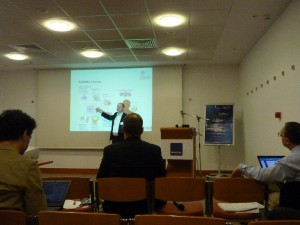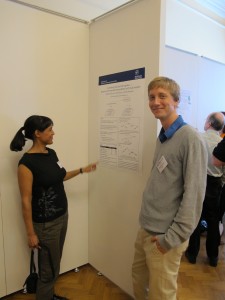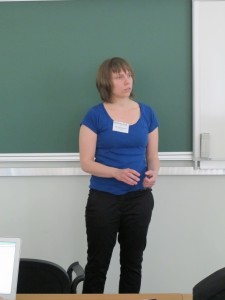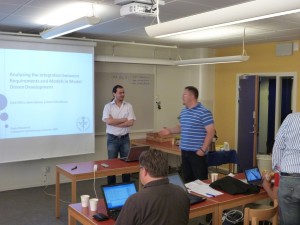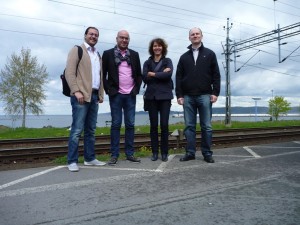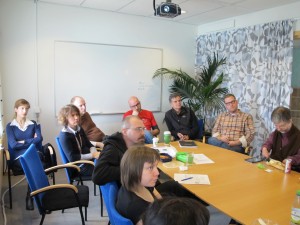EnRiMa project was presented at Fourth Future Internet Cluster Workshop on ICT and Sustainability in Budapest.
My presentation is available here http://enrima-project.eu/news/enrima-project-presented-international-event-about-ict-and-sustainability
Abstract
The aim of the project Energy Efficiency and Risk Management in Public Buildings (EnRiMa) is to develop a decision-support system to enable operators to control energy flows and ensure energy efficiency in public buildings. The project aims to support building operators in managing a set of conflicting goals such as to minimize costs, improve energy efficiency, reduce emissions, sustain comfort requirements set by the building occupants and in the same time to manage risks and uncertainties. This presentation will focus on the future challenges related to the ICT impact on Energy Efficiency, such as integration and use of large amounts of data (e.g. sensor, weather, occupant), user friendly adaptation, customization and evolvement of decisions over time, amalgamation of decision making based on mathematical models with business strategy development based for example on conceptual models and balanced scorecards, integration of building energy management systems with other information systems used by the operators, as well as open and service oriented information system architectures for building operations.
